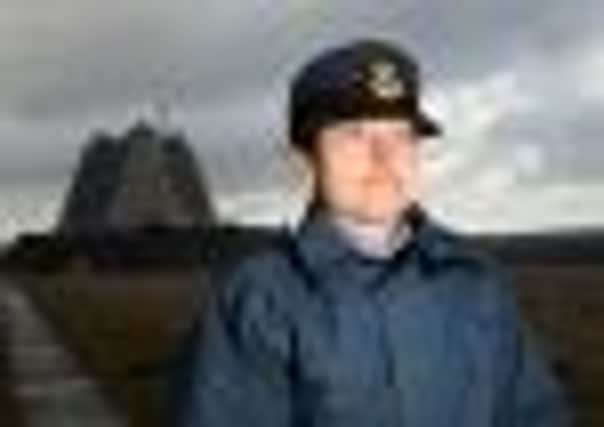Exclusive: Yorkshire base set to lead fight against rogue terrorist nations


RAF Fylingdales in North Yorkshire has been one of the key strategic elements in the battle to contain the threat of missile strikes against the West since the Cold War.
But as tensions mount with the possibility of a nuclear deployment from a number of countries, including Iran and North Korea, the radar station high on the North York Moors will play an even more important role in monitoring the skies.
Advertisement
Hide AdAdvertisement
Hide AdSenior civil servants are drafting the first ever National Space Security Policy, which is due to be published this year. The importance of RAF Fylingdales in providing a cornerstone of the strategy led to Ministers visiting the air base last month to speak directly to officers about threats to national security and the need to closely monitor satellites and space.
The station commander of RAF Fylingdales, Wing Commander Rayna Owens, said: “RAF Fylingdales has had a key role for national and international security for nearly 50 years, and we will continue doing what we have always done.
“But that role is undoubtedly becoming more and more influential. There is a growing understanding in the UK about the need to know more about space. The new policies which are being drawn up will shape this understanding throughout the years to come.”
The Government published the first National Security Strategy in October 2010, which identified the monitoring of space and satellite technology as among the UK’s most pressing requirements.
Advertisement
Hide AdAdvertisement
Hide AdA revolution in technology has led to satellites now providing the foundations for life in the 21st century, giving data for weather forecasts, delivering broadband internet across the country and helping ships to navigate.
But the need to monitor the satellites and the potential for them to guide missile strikes is seen as vital following a dramatic surge in the number of objects orbiting the planet.
RAF Fylingdales has played a key role in plotting the trajectory of the 32,000 objects in orbit, ranging from the International Space Station to a stray glove and screwdriver, and picking up on any unidentified movements.
The air base, which has been a landmark between Pickering and Whitby since it became operational in 1963, is used mainly for ballistic missile warnings, although it has a secondary role for space surveillance.
Advertisement
Hide AdAdvertisement
Hide AdIt is this surveillance role that is seen as increasingly important to help to monitor the threat from hostile missile launches.
The Conservative MP for Thirsk and Malton, Anne McIntosh, whose constituency includes RAF Fylingdales, said: “With the new policies for national space security, Fylingdales will be even more integral for the defence of the UK and our allies.
“We never know where the threat will come from next, and there is a need to be constantly aware. Every precaution needs to be taken, which is why the Government is drafting the national space security policy.”
The need to monitor space was clearly illustrated last month when a stranded Russian science satellite, known as Phobos-Grunt and loaded with rocket fuel for a round-trip mission to Mars, re-entered the Earth’s atmosphere before plunging into the Pacific Ocean.
Advertisement
Hide AdAdvertisement
Hide AdA Government spokesman stressed the maintenance and development of satellites is vitally important for “our prosperity, way of life and national security”.
He added: “The Government is therefore preparing a Space Security Policy which will look at the risks to space services – for example, from debris in space, solar storms or cyber attacks - and how we manage these risks, allowing us to reap and promote the huge benefits and opportunities that space has to offer.”